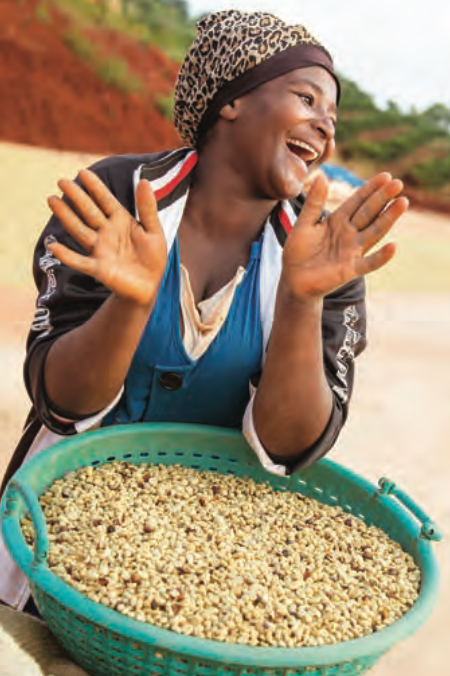

Get 10% off your first order
Use Code: FIRSTORDER
Featured Products
90% of coffee farmers are victims of price exploitation
In many cases, these farmers receive wages so low that they are effectively living in poverty.
It doesn’t have to be this way
Introducing ethical sourcing from the African Coffee Club

Get 10% off your first order
Use Code: FIRSTORDER

How it works
We source exclusively from importers that negotiate the price of coffee beans before the harvest, not after, and who also ensure the small-scale farmer receives a living wage for their efforts.
Before
Farmer is able to estimate costs up front and lock in prices that ensure a living wage.
After
Farmers are in a vulnerable position after the harvest and are often the victim of price exploitation.
Why African Coffee?
Hint 😏: It’s super tasty!
The Taste
African coffees are world-renowned for their surprising floral and fruity notes.
The Altitude
African coffee is grown at unforgiving high altitudes which delivers a unique flavor.
The Process
This is old-school natural hand processing at its finest handed from generation to generation.

Testimonials
“The coffee arrived very quickly! It is delicious—exquisite, actually. I have had many African coffees and this is inexplicably different.”
“... an invitation to learn some African culture and geography ... a chance to learn some new things about coffee ... an opportunity to pay a fair price for a great product ...”

Get 10% off your first order
Use Code: FIRSTORDER
Our Story
Mukurima Muriuki, Co-Founder
My name is Mukurima Muriuki, I am a second-generation Kenyan coffee farmer who now lives in Los Angeles and Co-Founder of the African Coffee Club.
My grandfather who I am named and under whose tutelage I grew up, used to share shocking stories of life growing up under a dehumanizing colonial rule. According to colonial policy, Africans were meant to provide free labor in the settlers’ farms and were not accorded any education.
After attaining independence and freedom, known in the Kiswahili language as “Uhuru” Africans finally had access to the land once controlled by colonial powers. For the first time, Africans could grow crops like coffee, earn a livelihood, and better their lives.
Today, sadly, most small-scale coffee farmers are yet to taste the true “Uhuru” of their labor. Despite African coffee being one of the most highly sought-after coffees in the world, the farmers do not get a fair share of the market value because the supply chain process is rigged against the farmer.













